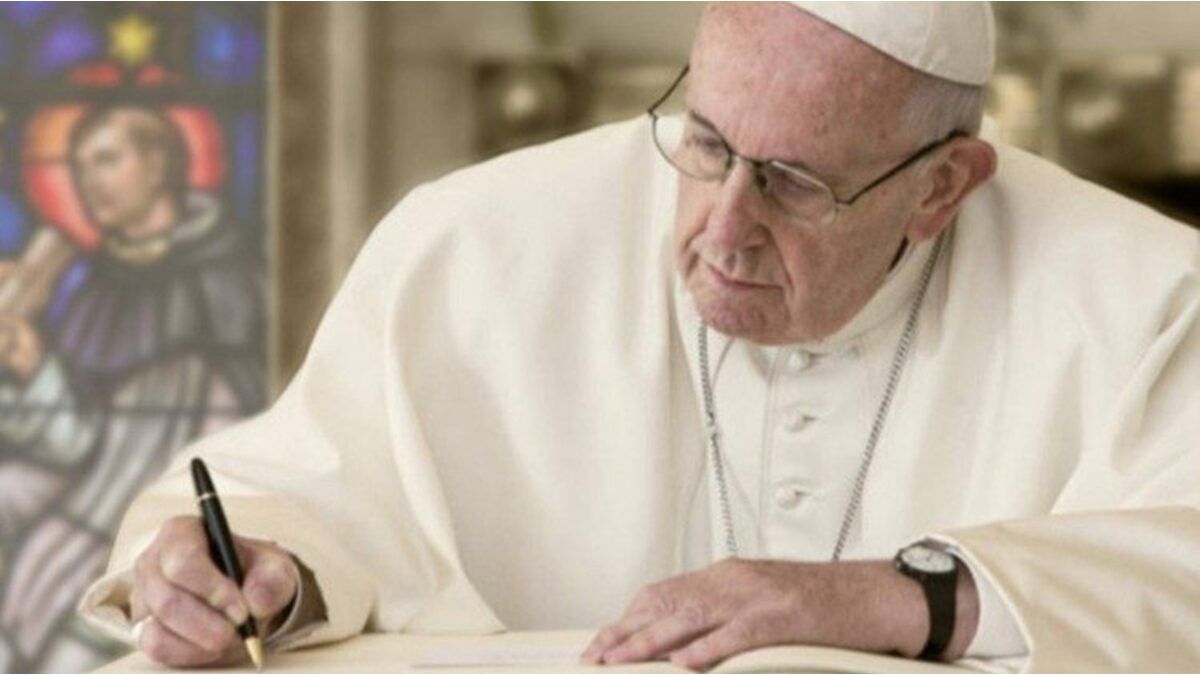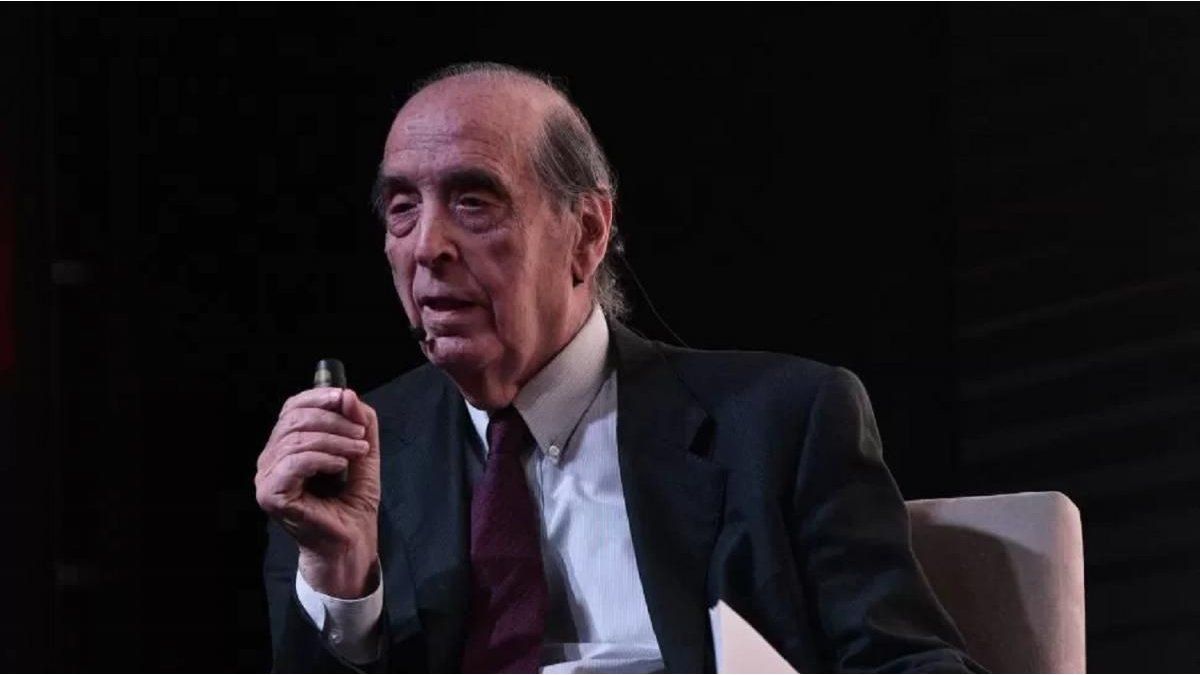Welfare is much more than what a GDP per capita measures. It is to consider the person not as an individual gear of a system of oppression and alienation, but in considering its entire human dimension, which include access to essential goods and services that make a quality of life beyond the material. It is to reconcile an individual house worthy with the common house. Is to leave the culture of discard and exclusion.
The Pope confirms the failure of the “spill theory” of conventional thought that translates into the conventional vision of the IMF and the World Bank and denounces the “new idolatry of money” the “new golden calf” of the financial globalization generated by the “enrichment of a few” contraracted a growing inequality.
The new idolatry of money “governs” when it should serve. In this sense, the encyclical clearly speaks of the terrible consequences of the “absolute autonomy of the markets” and financial speculation. It also stands out as the debt of the countries and the burden of their interests away from the countries of their economic viability.
How do we see each line of Evangelii Gaudiumclearly reflects the state of the art of the world and issues that lacerate our country.
Thus, the false values of postmodern individualism are denounced, which conspires against the development and lack of solidarity, human, real ties and as that translates and reproduces a more violent selfish and unequal world that generates waste islands surrounded by extreme poverty. Superconsumism And indigence, the two sides of a currency that live in an unintentable or economic, or socially speaking model.
The encyclical contrasts the model in crisis with the need for a new model of “growth with equity” an objective that defined the Phoenix Group in 2000, in the middle of the crisis of the convertibility plan, a model that “demands more than economic growth, although it supposes it, it requires decisions, programs, mechanisms and processes specifically oriented to a better income distribution, to a creation of work sources, to a comprehensive promotion of the poor welfare ”.
The encyclical defines four principles that exceed its own enclosures with false dilemmas, which I will analyze very briefly, but are itself concepts that define a vision of a society that can solve the pressing contemporary problems.
Time is superior to space
This principle invites you to “open horizons” to transcend the situation. An active patience that rejects resignation and defines the value of planning to initiate processes (essential tool for a development process) and not delimit spaces. A mental openness to seek to get out of the labyrinths above, with creative solutions and without political locks.
The unit is superior to the conflict
The Pope invites a virtuous dialectic. The conflict should not be ignored, but it should not be trapped in it. It defines a third way, the most appropriate, to be in the face of the conflict, implies solving it and transforming it into the link of a new process.
This implies recognizing the other, strengthening ties, building bridges with which there are differences, without sectarianism, leaving aside secondary contradictions. It is about accumulating forces and especially convincing more than to overcome or said in another way to overcome without setbacks of “pyrrhic victories.”
Reality is superior to the idea
As this principle refers outside of its deep philosophical dimension, at the beginning that “better to say is to do.” The Pope urges us to leave “angelic purisms, the totalitarianism of the relative, the declarationist nominalisms, the most formal than real projects, the ahistoric fundamentalisms, the ethicalisms without goodness, the intellectuals without wisdom.”
The key is that “ideas” models, theories and paradigms should serve to understand reality and build a better reality, stopping adapting reality to absolute, totalizing, timeless models.
The encyclical defines that between “globalization and location there is also a tension.” It is necessary to pay attention to the global so as not to fall into a daily meanness. At the same time, it is not convenient to lose sight of the local, which makes us walk with “our feet on the ground.”
Thus we must move away from the “abstract universalism or admiring the fireworks of the world, which belongs to others, with an open mouth and programmed applause; but also of false localisms that become a folk museum of hermits, condemned to always repeat the same”.
The whole is superior to the part
This principle, where the whole is more than the mere sum of the partialities, connects in millenary eastern philosophies, not for nothing is typical of countries with a sense of “community” and that have a much higher performance (Asian countries) much higher than the Western economies, prey of an individualism that translates into the “save who can” increasingly rooted in Argentina and that is pontified by some governments as a governance in society.
The Pope reminds us that “it is necessary to sink the roots in the fertile land and in the history of the place itself, which is a gift of God. It works in the small, in the near, but with a broader perspective.”
Just as IMF programs and neoliberalism do not recognize local realities (structures, idiosyncrasy) and thus fail, national views should be transcended that do not interpret the changing global processes. The regional dimension to generate viable spaces is a overcoming diagonal that moves us from both unfeasible autarchies and a subordination to impoverishing hegemonic powers.
Implementation of Francisco’s ideas
It is clear that the policies of the Argentine government are diametrically remote from the Pope’s thought. But also that the policies of popular governments could not fully transform a reality aggravated by neoliberal governments, with a critical situation for years, subtracting consensus for policies of a state present, not only in middle sectors but among many humble sectors that should be beneficiaries of such “inclusive” policies.
How to fall in love with a society from a popular and progressive look, to prevent siren songs from set in an individualistic hate look, prey to resignation, do not deepen major evils?
The answer is in politics, so denigrated, (without ignoring that there are many reasons for such anger) that “it is (or should) a very high vocation, one of the most precious forms of charity, because it seeks the common good.”
This search for the common good to implement Francisco’s ideas implies formulating medium -term plans that allow us
As our country would change if only part of the principles of Evangelii Gaudium would be implemented. As we need the Pope at this global and local situation. In this complex world, in the midst of such confusion and hopelessness, as Bishop García Cuerva said “we must all be Francisco.”
I do not take this definition as something religious, but as something divinely. Or perhaps, if it is understood to the term “Relagare” as Francisco recovered, as a vision that links, it is “re-liga” to people. To recover your dignity.
It is about each one being a bit Francisco, for the little one of each one and the great of all, transcending a sad reality, and thus being able to fully restore our human dimension again rebuilding the common house.
Director of Synthesis and former president of the Central Bank of the Argentine Republic (BCRA).
Source: Ambito
David William is a talented author who has made a name for himself in the world of writing. He is a professional author who writes on a wide range of topics, from general interest to opinion news. David is currently working as a writer at 24 hours worlds where he brings his unique perspective and in-depth research to his articles, making them both informative and engaging.




